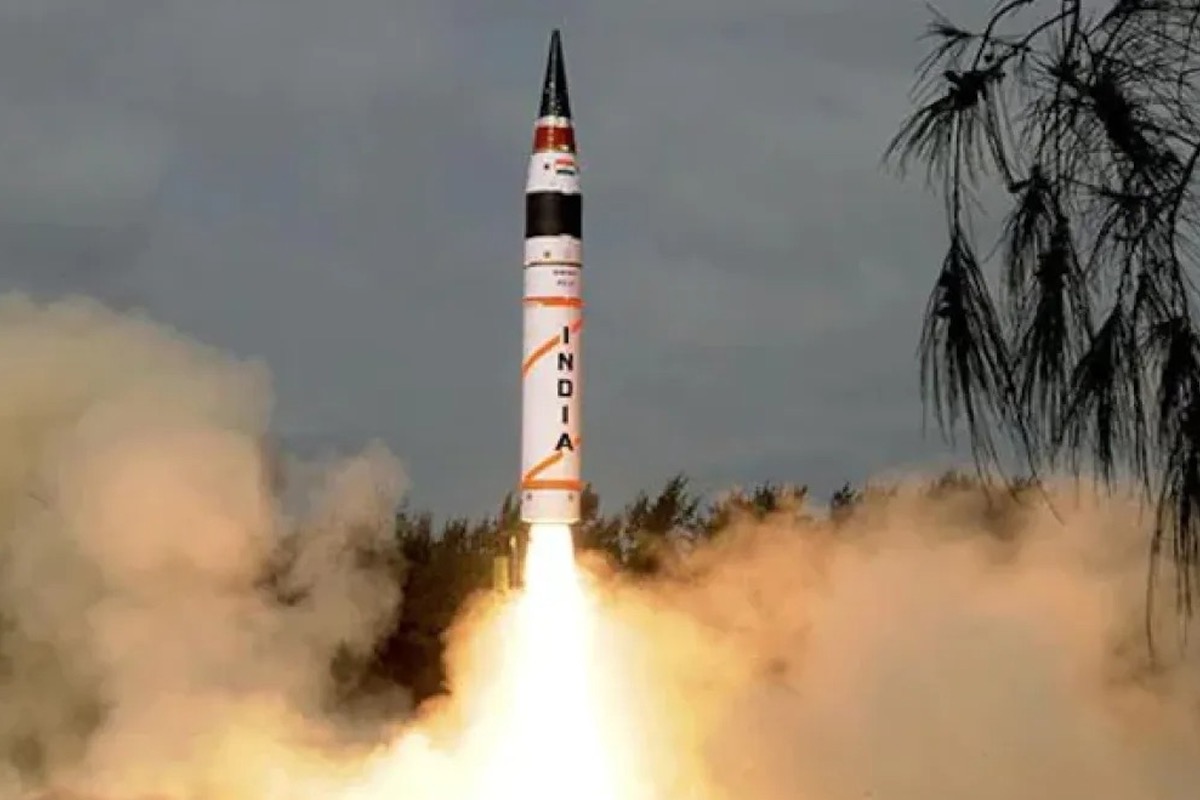India successfully tested its nuclear-capable ballistic missile- Agni V, which can hit a target over 5,500 km away on Thursday.
The test trials conducted during late evening hours came amid recent border tensions with China, wherein Indian troops clashed with Chinese counterparts along Indo-China border in Arunachal Pradesh.
The nuclear-capable ballistic missile was fired from Abdul Kalam Island, off the coast of Odisha. It was the ninth flight of the Agni V missile, which was first tested in 2012.
The test was carried out to validate new technologies and equipment on the missile and has proved that the missile can now hit targets further away than before, sources said.
The state-of-art missile can travel 24 times faster than the speed of sound, while carrying a nuclear payload of 1,500 Kg. It can hit a target at even a longer distance of 8,000 Km with a lighter warhead. It is 17.5 meters in height, 2 meters in girth and weighs 50 tons.
This is the fifth version of the original missile weapon Agni-I which was launched in 2012. Its range has increased from 700 Km to over 5,000 Km since its first edition, a drastic improvement over the first one to be launched.
Interestingly, the Agni-V trials took place just days after Indian and Chinese troops engaged in a skirmish in the Tawang sector of Arunachal Pradesh.
Defence minister Rajnath Singh, in a brief statement in Parliament on December 13, said troopers of the People’s Liberation Army (PLA) had, on December 9, tried to unilaterally alter the border status quo at Yangtse in Tawang sector and were strongly countered by the Indian Army. No Indian soldier died or was gravely injured, he informed. The incursion attempt was contested “in a firm and resolute manner” and has been taken up with the Chinese side through diplomatic channels.
The PLA transgression came less than a month after Prime Minister Narendra Modi had shaken hands and spoken to Chinese President Xi Jinping at the G20 summit in Bali.










